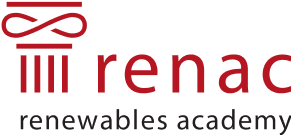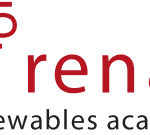This website uses cookies so that we can provide you with the best user experience possible. Cookie information is stored in your browser and performs functions such as recognising you when you return to our website and helping our team to understand which sections of the website you find most interesting and useful.
Customer-specific programmes
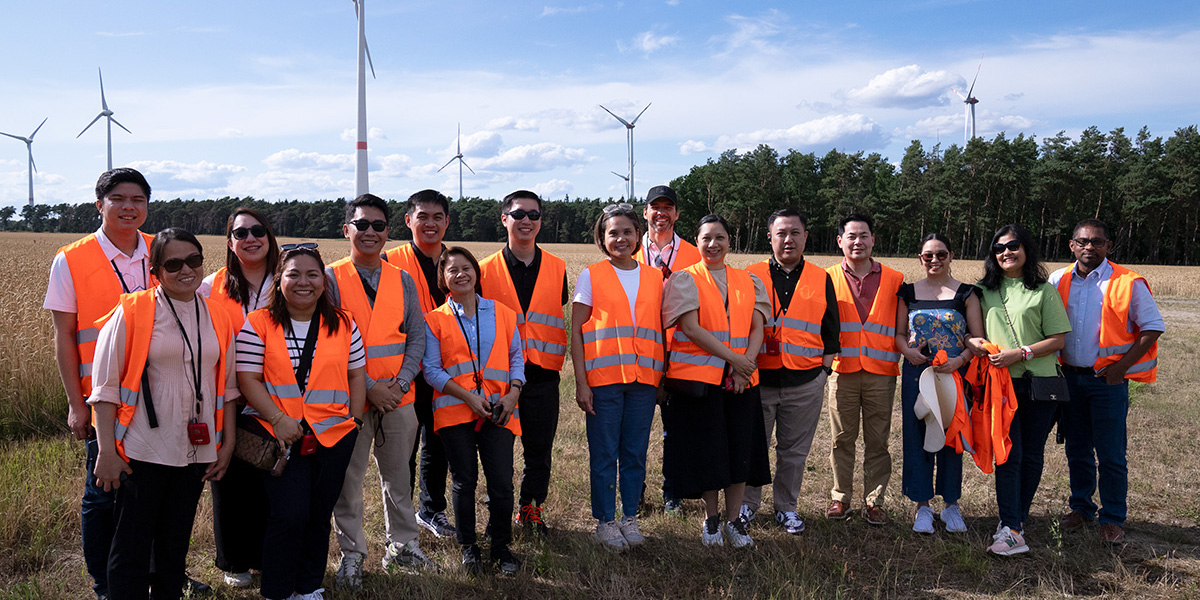
Job requirements in the green energy markets are complex and manifold. To ensure a company or organisation success, employees need extensive skills and up-to-date know-how.
RENAC customer-specific programmes offer the best way to meet participants’ training objectives:
- Analysis of participants’ capacity needs
- Selection of training contents and methods according to prior knowledge and needs
- The most suitable trainers
- Development of comprehensive materials with the highest quality standards
- Implementation of the training
Additionally, the training can be adjusted in duration and depth, organised for groups of various sizes and adapted to cover various technologies. Clients can determine when and where the training takes places.
Filter and search
Type
Name
Duration
Study time
Info
- components, configurations, economics, physical aspects, power output
hours
Content:
- PV system / Grid connected / Off-grid Application
- Energy flow and metering options
- Solar irradiation and space requirements
- PV system energy yield
- Economics of PV systems
Learning objectives:
After completion of this course, participants will be able to:
- Describe a range of grid-connected and off-grid PV applications and how they are useful
- Visualise how onsite PV electricity generation can meet daily electricity demand describe solar irradiation around the globe
- Calculate the required spacing between PV module rows to avoid self-shading
- Calculate the basic energy yield from a PV system using Peak Sun Hours and Performance Ratio
- Explain which factors influence the capital and operational expenditures of PV systems, and give examples of system costs in different countries around the world
- Perform basic calculations of payback time and unit cost of electricity for grid-connected and off-grid PV systems
Target group:
This training suits those who are interested in renewable energy technologies
- construction, installation, operation and maintenance, planning, project development, system components
hours
Content:
• Project mission
• Main system components
• Project development
• Project planning
• Construction and installation
• PV plant operation
Learning objectives:
After completion of this course, participants will be able to:
- Define and explain the required components of the PV power plant
- Describe the contracts, studies and permissions required for PV project development#
- Present all necessary steps from planning to operation and maintenance
- Assess and supervise the implementation of a large-scale PV power plant
Target group:
This training suits those who are working in the energy sector, engineers, installers, project developers
- collector configurations, commissioning, component selection, component sizing, economics, frequent faults, system design, system selection
hours
Content:
- Solar thermal collectors
- Storage cylinders and other system components
- System types
- Sizing
- Design example
- Implementation
Learning objectives:
After completion of this course, participants will be able to:
- Explain how large-scale solar thermal systems work and describe different system components and their respective performance standards
- Differentiate large-scale system configurations and their area of application,
- Manage the designing of a large-scale system and the sizing specification of components
- Guide and supervise installation, commissioning, fault finding and maintenance
Target group:
This training suits those who are from the energy sector, engineers, installers, building services managers
- design criteria, digestor, environmental standards, feasibility studies, planning
hours
Content:
- The anaerobic digestion process – Types of process and process parameters
- Special Substrates and Sustainability
- Special technologies for biogas production
- Main Components
- Biogas applications
- Treatment of digestate
- Example Biogas plant
- Operation and maintenance
Learning objectives:
After completion of this course, participants will be able to:
- Describe the anaerobic digestion process and relevant process parameters
- Discuss special substrates and technologies for biogas production in connection with sustainability issues
- Explain all necessary steps from planning to operation and maintenance
- Present the functioning of system components and their respective applications
Target group:
Professionals from the energy sector, engineers, project developers
- commissioning, economics, feasibility studies, installation, operation and maintenance, optimisation, technical aspects for conversion
hours
Content:
• Introduction to feasibility case study
• Feasibility study – PV integration and conclusions
• Technical aspects of conversion from diesel-only to
• Additional options to optimize system
• Financial analysis – key parameters
• Installation, commissioning, operation and maintenance
Learning objectives:
After completion of this course, participants will be able to:
- Distinguish between different system designs and their preferable application
- Lead a feasibility study to integrate PV into an existing diesel power system
- Explain the functioning of system components, operational strategies and how to optimise potential
- Assess and supervise the planning and implementation of a PV-diesel power plant
Target group:
This training suits those who are working in the energy sector, engineers, installers, project developers
- construction plan, contracts, design, financial analysis, licences, permits, project development, resource assessment, site assessment
hours
Content:
- Project planning: gaining all necessary approvals
- Site assessment
- Resource assessment
- Design
- Installation, operation & maintenance
- Financial analysis
Learning objectives:
After completion of this course, participants will be able to:
- Describe in detail the tasks and parties involved in small hydro project planning, construction and operation
- Describe different methods for collecting flow data and use this data to create a flow duration curve which you can use to make an energy yield calculation
- Perform basic design and selection of major components of a small hydro scheme including intake screen, penstock pipe, turbine and generator
- Produce a cash flow balance sheet for a small hydro scheme and calculate and interpret typical financial performance indicators (DSCR, NPV, IRR, LCOE)
Target group:
This training suits those who are from the energy sector, engineers, installers, persons interested in implementing their own small-scale hydro projects
- energy market concepts, energy planning, energy policy instruments, financing mechanisms, long-range energy policy, quantification of employment impacts with I-JEDI tool, sustainable energy transition
Content:
Energy sectors and markets
- Overview of energy sectors and analysis of energy markets
Energy planning
- Overview of key energy planning tools
- Analysis of strategies to model national energy supply and long-term energy demand
- Planning of generation, installed capacity, transmission and distribution networks
- Design and implementation of appropriate monitoring protocols
- Establishment of an Energy Information System (EIS)
Financing mechanisms in the energy markets
- Net Metering, feed-in tariffs, and auction mechanisms
- PPP models
- Strategies for attracting private sector investment
- Government support and involvement in energy finance
- Mobilizing local and international capital to scale-up energy efficiency and renewable energy use
Energy policies
- Overview of policy instruments
- Energy targets, target setting and approaches to develop a national energy policy
- Design of policy instruments and policy implementation
- Multisectoral inclusion in policy planning, governance structure, stakeholder management and engagement
- Environmental considerations of energy generation and consumption
Climate change and energy
- International compromises and coherent policy frameworks for fighting climate change and promoting a sustainable energy transition
OPTIONAL: Quantification of employment impacts of RE deployment
- I-JEDI Tool by NREL
- assessing job effects (PV, wind)
Learning objectives:
After the seminar participants will be able to:
- Talk about the importance of energy planning
- Discuss the planification of national energy supply and demand
- Contribute to the design and implementation strategies of different adopted policies
Target group:
This training suits:
- Policy makers
- Decision makers
- Consultants
- auctions, feed-in tariff design, net metering, physical basics, quota systems
hours
Content:
• Introduction to renewable energy policy and target setting
• Net-metering for Distributed Generation
• Feed in tariff for distributed generation and large-scale projects
• Competitive procurement/auctions for large-scale projects
• Additional incentives
• Grid connection, grid bottlenecks and related regulatory frameworks
Learning objectives:
After completing the course, participants will be able to:
• analyse the most widely used support mechanisms for renewable energy (feed-in tariff, net-metering, auction and quota-based mechanisms),
• evaluate how specific support mechanisms influence certain RE projects
• determine conditions to design successful support mechanisms or regulatory policies
• discuss suitability of policy regulations for different phases of the energy transition
Target group:
This training suits those who:
• Are responsible for developing RE support mechanisms
• Want to make use of RE support mechanisms in their RE project
• Evaluate, compare and assess RE support mechanisms
- Latin America, MENA, Southeast Asia
hours
Content:
- Electricity market analysis
- Renewable energy and energy efficiency sector analysis
Countries available:
- Columbia
- Costa Rica
- Egypt
- El Salvador
- Guatemala
- Honduras
- India
- Indonesia
- Jordan
- Morocco
- Nicaragua
- Panamá
- Perú
- Philippines
- Thailand
- Tunisia
- Vietnam
Learning objectives:
After completion of this course, participants will be able to:
- present the electricity market of the countries including the political framework, market structure and main stakeholders
- identify trends in power generation capacity, electricity demand and market development
- examine the support mechanisms for renewable energy and energy efficiency in the countries
- discover funding sources for renewable energy and energy efficiency projects
Target group:
This training is addressed to:
- Renewable energy and climate project developers and investors
- Professionals working in financing institutions, consultancies, and public organisations
- portfolio diversification, portfolio management, quantitative basics, RE as asset class, risk management
hours
Content:
- Renewable energy as an asset class
- Risk management as a basis for portfolio management
- Classification of different components of management of RE investments
- Quantitative basics of portfolio theory
- Diversification in RE portfolios
- RE portfolio management – practical application
Case study related to RE portfolio management
Learning objectives:
After completion of this course, participants will be able to:
- Explain the basic concept behind an investment in a renewable energy asset
- Classify the different components of RE investment management
- Define the role of portfolio management and identify diversification potential to exploit portfolio effects
- Establish strategies to efficiently manage and monitor existing RE portfolios and their single assets
Target group:
This training suits professionals in the financial sector involved or interested in RE project finance who
- Want to establish and maintain a portfolio of RE projects
- Have to assess portfolios of RE projects for their clients
- Are interested to improve their risk management as a lender, investor or project developer for RE projects
- balancing power needs, base/middle/peak load, grid studies, security of energy supply, short-term forecast
Content:
- Photovoltaic (PV) and wind power technology
- Residual load approach and power system flexibility
- Balancing power needs for system operation and planning
- Short-term PV and wind power forecasts
- Security of supply with wind power and photovoltaic
- Grid integration and system integration study set-up
Learning objectives:
After the seminar participants will be able to:
- Determine effects of high shares of PV and wind power on power systems
- Explain the residual load approach and flexibility measures
- Explain short-term wind and PV forecasts for grid operation and energy market transactions
- Calculate balancing power needs and the reliable PV and wind power capacity with a probabilistic tools
- Explain frequency and voltage control with PV inverters and wind turbine generators
- Manage the set-up of a grid and/or system integration study for variable renewable energy
Target group:
This training suits those who:
- Are responsible for power system planning and strategy development in public and private companies and institutions the energy sector
- Plan and operate transmission and distribution electricity grids
- Academia who like to learn about grid integration strategies
- advanced planning, case studies, indicators, modelling approaches, tools/software overview, traditional planning
hours
Content:
• Introduction to the power system
• Indicators and co-benefits in power system planning (PSP)
• TIPSP methodology
• Advanced power system planning methodology
• Advanced integrated power system planning methodology (AIPSP)
• Comparison of planning tools
• Power system planning case studies with and without co-benefits
Learning objectives:
After completing this course, participants will be able to:
- distinguish between traditional and advanced power system planning (PSP) approaches,
- compare tools used for power system planning and how co-benefits can be used during the planning process and
- explain how selected co-benefits of renewable energy, e.g. tackling climate change and the human health effects of ambient air quality, affect the outcome of power system planning.
Target group:
This course suits those who
- want to get an overview on power system planning steps and tools used therefore
- are involved in roadmaps and strategies for power system development with renewable energy
- want to consider co-benefits of renewable energy in power system planning
Content:
- PV system / Grid connected / Off-grid Application
- Energy flow and metering options
- Solar irradiation and space requirements
- PV system energy yield
- Economics of PV systems
Learning objectives:
After completion of this course, participants will be able to:
- Describe a range of grid-connected and off-grid PV applications and how they are useful
- Visualise how onsite PV electricity generation can meet daily electricity demand describe solar irradiation around the globe
- Calculate the required spacing between PV module rows to avoid self-shading
- Calculate the basic energy yield from a PV system using Peak Sun Hours and Performance Ratio
- Explain which factors influence the capital and operational expenditures of PV systems, and give examples of system costs in different countries around the world
- Perform basic calculations of payback time and unit cost of electricity for grid-connected and off-grid PV systems
Target group:
This training suits those who are interested in renewable energy technologies
Content:
• Project mission
• Main system components
• Project development
• Project planning
• Construction and installation
• PV plant operation
Learning objectives:
After completion of this course, participants will be able to:
- Define and explain the required components of the PV power plant
- Describe the contracts, studies and permissions required for PV project development#
- Present all necessary steps from planning to operation and maintenance
- Assess and supervise the implementation of a large-scale PV power plant
Target group:
This training suits those who are working in the energy sector, engineers, installers, project developers
Content:
- Solar thermal collectors
- Storage cylinders and other system components
- System types
- Sizing
- Design example
- Implementation
Learning objectives:
After completion of this course, participants will be able to:
- Explain how large-scale solar thermal systems work and describe different system components and their respective performance standards
- Differentiate large-scale system configurations and their area of application,
- Manage the designing of a large-scale system and the sizing specification of components
- Guide and supervise installation, commissioning, fault finding and maintenance
Target group:
This training suits those who are from the energy sector, engineers, installers, building services managers
Content:
- The anaerobic digestion process – Types of process and process parameters
- Special Substrates and Sustainability
- Special technologies for biogas production
- Main Components
- Biogas applications
- Treatment of digestate
- Example Biogas plant
- Operation and maintenance
Learning objectives:
After completion of this course, participants will be able to:
- Describe the anaerobic digestion process and relevant process parameters
- Discuss special substrates and technologies for biogas production in connection with sustainability issues
- Explain all necessary steps from planning to operation and maintenance
- Present the functioning of system components and their respective applications
Target group:
Professionals from the energy sector, engineers, project developers
Content:
• Introduction to feasibility case study
• Feasibility study – PV integration and conclusions
• Technical aspects of conversion from diesel-only to
• Additional options to optimize system
• Financial analysis – key parameters
• Installation, commissioning, operation and maintenance
Learning objectives:
After completion of this course, participants will be able to:
- Distinguish between different system designs and their preferable application
- Lead a feasibility study to integrate PV into an existing diesel power system
- Explain the functioning of system components, operational strategies and how to optimise potential
- Assess and supervise the planning and implementation of a PV-diesel power plant
Target group:
This training suits those who are working in the energy sector, engineers, installers, project developers
Content:
- Project planning: gaining all necessary approvals
- Site assessment
- Resource assessment
- Design
- Installation, operation & maintenance
- Financial analysis
Learning objectives:
After completion of this course, participants will be able to:
- Describe in detail the tasks and parties involved in small hydro project planning, construction and operation
- Describe different methods for collecting flow data and use this data to create a flow duration curve which you can use to make an energy yield calculation
- Perform basic design and selection of major components of a small hydro scheme including intake screen, penstock pipe, turbine and generator
- Produce a cash flow balance sheet for a small hydro scheme and calculate and interpret typical financial performance indicators (DSCR, NPV, IRR, LCOE)
Target group:
This training suits those who are from the energy sector, engineers, installers, persons interested in implementing their own small-scale hydro projects
Content:
Energy sectors and markets
- Overview of energy sectors and analysis of energy markets
Energy planning
- Overview of key energy planning tools
- Analysis of strategies to model national energy supply and long-term energy demand
- Planning of generation, installed capacity, transmission and distribution networks
- Design and implementation of appropriate monitoring protocols
- Establishment of an Energy Information System (EIS)
Financing mechanisms in the energy markets
- Net Metering, feed-in tariffs, and auction mechanisms
- PPP models
- Strategies for attracting private sector investment
- Government support and involvement in energy finance
- Mobilizing local and international capital to scale-up energy efficiency and renewable energy use
Energy policies
- Overview of policy instruments
- Energy targets, target setting and approaches to develop a national energy policy
- Design of policy instruments and policy implementation
- Multisectoral inclusion in policy planning, governance structure, stakeholder management and engagement
- Environmental considerations of energy generation and consumption
Climate change and energy
- International compromises and coherent policy frameworks for fighting climate change and promoting a sustainable energy transition
OPTIONAL: Quantification of employment impacts of RE deployment
- I-JEDI Tool by NREL
- assessing job effects (PV, wind)
Learning objectives:
After the seminar participants will be able to:
- Talk about the importance of energy planning
- Discuss the planification of national energy supply and demand
- Contribute to the design and implementation strategies of different adopted policies
Target group:
This training suits:
- Policy makers
- Decision makers
- Consultants
Content:
• Introduction to renewable energy policy and target setting
• Net-metering for Distributed Generation
• Feed in tariff for distributed generation and large-scale projects
• Competitive procurement/auctions for large-scale projects
• Additional incentives
• Grid connection, grid bottlenecks and related regulatory frameworks
Learning objectives:
After completing the course, participants will be able to:
• analyse the most widely used support mechanisms for renewable energy (feed-in tariff, net-metering, auction and quota-based mechanisms),
• evaluate how specific support mechanisms influence certain RE projects
• determine conditions to design successful support mechanisms or regulatory policies
• discuss suitability of policy regulations for different phases of the energy transition
Target group:
This training suits those who:
• Are responsible for developing RE support mechanisms
• Want to make use of RE support mechanisms in their RE project
• Evaluate, compare and assess RE support mechanisms
Content:
- Electricity market analysis
- Renewable energy and energy efficiency sector analysis
Countries available:
- Columbia
- Costa Rica
- Egypt
- El Salvador
- Guatemala
- Honduras
- India
- Indonesia
- Jordan
- Morocco
- Nicaragua
- Panamá
- Perú
- Philippines
- Thailand
- Tunisia
- Vietnam
Learning objectives:
After completion of this course, participants will be able to:
- present the electricity market of the countries including the political framework, market structure and main stakeholders
- identify trends in power generation capacity, electricity demand and market development
- examine the support mechanisms for renewable energy and energy efficiency in the countries
- discover funding sources for renewable energy and energy efficiency projects
Target group:
This training is addressed to:
- Renewable energy and climate project developers and investors
- Professionals working in financing institutions, consultancies, and public organisations
Content:
- Renewable energy as an asset class
- Risk management as a basis for portfolio management
- Classification of different components of management of RE investments
- Quantitative basics of portfolio theory
- Diversification in RE portfolios
- RE portfolio management – practical application
Case study related to RE portfolio management
Learning objectives:
After completion of this course, participants will be able to:
- Explain the basic concept behind an investment in a renewable energy asset
- Classify the different components of RE investment management
- Define the role of portfolio management and identify diversification potential to exploit portfolio effects
- Establish strategies to efficiently manage and monitor existing RE portfolios and their single assets
Target group:
This training suits professionals in the financial sector involved or interested in RE project finance who
- Want to establish and maintain a portfolio of RE projects
- Have to assess portfolios of RE projects for their clients
- Are interested to improve their risk management as a lender, investor or project developer for RE projects
Content:
- Photovoltaic (PV) and wind power technology
- Residual load approach and power system flexibility
- Balancing power needs for system operation and planning
- Short-term PV and wind power forecasts
- Security of supply with wind power and photovoltaic
- Grid integration and system integration study set-up
Learning objectives:
After the seminar participants will be able to:
- Determine effects of high shares of PV and wind power on power systems
- Explain the residual load approach and flexibility measures
- Explain short-term wind and PV forecasts for grid operation and energy market transactions
- Calculate balancing power needs and the reliable PV and wind power capacity with a probabilistic tools
- Explain frequency and voltage control with PV inverters and wind turbine generators
- Manage the set-up of a grid and/or system integration study for variable renewable energy
Target group:
This training suits those who:
- Are responsible for power system planning and strategy development in public and private companies and institutions the energy sector
- Plan and operate transmission and distribution electricity grids
- Academia who like to learn about grid integration strategies
Content:
• Introduction to the power system
• Indicators and co-benefits in power system planning (PSP)
• TIPSP methodology
• Advanced power system planning methodology
• Advanced integrated power system planning methodology (AIPSP)
• Comparison of planning tools
• Power system planning case studies with and without co-benefits
Learning objectives:
After completing this course, participants will be able to:
- distinguish between traditional and advanced power system planning (PSP) approaches,
- compare tools used for power system planning and how co-benefits can be used during the planning process and
- explain how selected co-benefits of renewable energy, e.g. tackling climate change and the human health effects of ambient air quality, affect the outcome of power system planning.
Target group:
This course suits those who
- want to get an overview on power system planning steps and tools used therefore
- are involved in roadmaps and strategies for power system development with renewable energy
- want to consider co-benefits of renewable energy in power system planning
Target Groups
Public sector officials for legal frameworks, regulation and implementation:

- Ministries
- Regulators
- Local administrations
Multipliers and development organisations:

- Development corporations
- Energy agencies
- International financing institutions
- NGOs
Private sector:

- Project developers
- System integrators
- Engineers and technicians
- Investors
- Financing institutions
- Grid operators
Capacity building and dissemination sector:

- Public and private training institutions
- Vocational training institutions
- Universities
Value Chain
We design and implement customer-specific programmes and services along the value chain in a holistic concept.
Our approach to Renewable Energy (RE) and Energy Efficiency (EE) is manifold: technology related knowledge is the basis and then each RENAC training and service focus on technical, economic, legal or project related aspects according to the target group. RENAC is also very active in international business matchmaking and market development services.
In our capacity building services we supply a variety of programmes to train trainers, to build training centres and to establish quality assurance processes.
Our Training Concept
Customer-Specific Programmes – what does it mean?
We offer customer-specific programmes according to client needs and participant job requirements in all green energy sectors. Based on an analysis of requested knowledge or specific job tasks and the level of existing knowledge, we develop a training concept proposal.
The concept includes recommendations for online or in-person trainings, or both. We develop the training concept taking the given resources on budget and learning time into account. After feedback from the client, we fine-tune the concept for approval.
Depending on the needs of our clients, we offer different levels of trainings (basic, intermediate, and advanced).
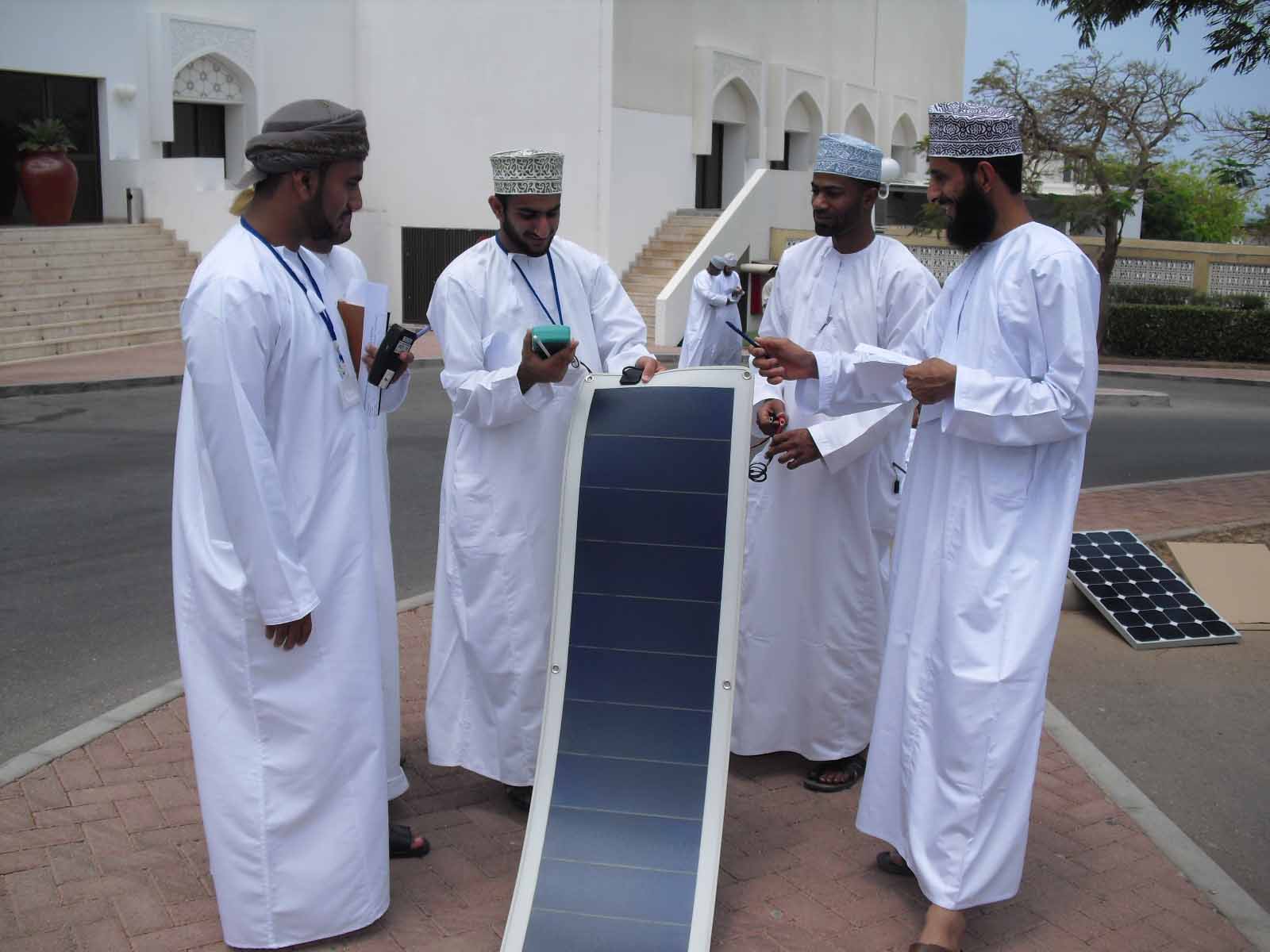
Service Catalogue
Find detailed information about the programme that best aligns with your needs and preferences.
Are you interested in a Customer-specific programmes?
Kindly fill out this questionnaire and attach it to the form on the right:
© 2024 | Renewables Academy (RENAC) AG
